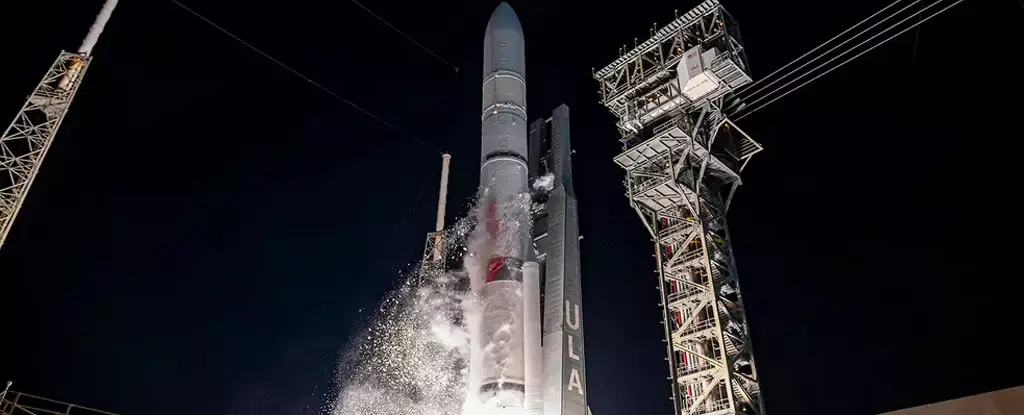On Tuesday, organizers of a historic commercial US mission to the Moon announced its failure, citing a critical loss of fuel. This setback dashes America’s hopes of placing its first spacecraft on the lunar surface since the Apollo era. The mission, involving Astrobotic’s Peregrine Lunar Lander, was seen as a crucial step in understanding the Moon’s composition and radiation levels before sending astronauts back. However, despite separating from its launch vehicle successfully, the spacecraft encountered numerous malfunctions that ultimately led to an inability to achieve a soft landing. With no chance of rectifying the situation, Astrobotic plans to operate the spacecraft until it runs out of propellant.
NASA had invested over $100 million in Astrobotic to transport scientific hardware for studying the Moon’s surface composition and radiation levels. This initiative was part of NASA’s strategy to rely on the commercial sector to stimulate a broader lunar economy and reduce costs. The failure of Astrobotic’s mission could potentially cast doubts on the effectiveness of this strategy, as questions arise about the reliability and success rate of private lunar missions. However, Astrobotic remains determined in its endeavors, gathering valuable data for future missions, including the upcoming Griffin lander mission, which will transport a NASA rover to the lunar south pole later this year.
Astrobotic is not the first private company to encounter challenges and failures in achieving a soft lunar landing. Israel’s Beresheet lander, the first attempt by a non-government entity, met a similar fate in April 2019 when it was destroyed upon impact with the Moon. Similarly, Japan’s private Hakuto mission operated by iSpace ended in failure in April 2023. These setbacks highlight the immense difficulties involved in lunar exploration and the formidable nature of landing a spacecraft on the Moon’s surface. Only a handful of national space agencies, such as the Soviet Union, the United States, China, and India, have successfully accomplished this feat.
While Astrobotic’s failure is undoubtedly a setback, it does not deter other companies from pursuing lunar exploration. Houston-based Intuitive Machines is gearing up for its own commercial lunar mission, scheduled for launch in February, with the aim of reaching the Moon’s south pole. The commercial sector’s continued involvement in lunar exploration holds promise for a diverse range of scientific discoveries and advancements. However, the recent failures call for increased scrutiny and reassessment of the strategies employed by private companies to ensure the success and reliability of future lunar missions.
In addition to its scientific instruments, Peregrine carried a unique cargo on behalf of private clients. This included a physical Bitcoin and cremated remains and DNA, such as those of Star Trek creator Gene Roddenberry, renowned sci-fi author and scientist Arthur C. Clarke, and even a dog. However, the mission received objections from the Navajo Nation, America’s largest Indigenous tribe, who considered the inclusion of human remains a desecration of a sacred space. Despite a last-ditch meeting with White House and NASA officials, their concerns were not addressed.
The failed US mission to the Moon, due to a critical loss of fuel, serves as a setback for lunar exploration and America’s aspirations of returning to the lunar surface. Astrobotic’s challenges and subsequent failure raise questions about the efficacy of relying on the commercial sector for lunar missions. Nonetheless, other companies remain undeterred and continue to push forward, aiming to contribute to scientific advancements and a burgeoning lunar economy. As the world eagerly awaits future missions, ensuring the success and ethical considerations of such endeavors become increasingly vital.



Leave a Reply